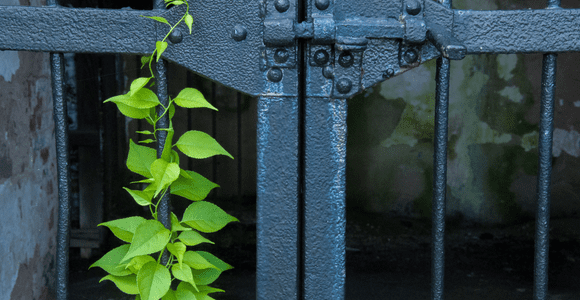Welcome readers! Please subscribe through the button on the right.

Our reading this week continues from the gospel of Luke:
Then Jesus told his disciples a parable to show them that they should always pray and not give up. He said: “In a certain town there was a judge who neither feared God nor cared what people thought. And there was a widow in that town who kept coming to him with the plea, ‘Grant me justice against my adversary.’
For some time he refused. But finally he said to himself, ‘Even though I don’t fear God or care what people think, yet because this widow keeps bothering me, I will see that she gets justice, so that she won’t eventually come and attack me!’ ”
And the Lord said, “Listen to what the unjust judge says. And will not God bring about justice for his chosen ones, who cry out to him day and night? Will he keep putting them off? I tell you, he will see that they get justice, and quickly. However, when the Son of Man comes, will he find faith on the earth?” (Luke 18:1-8)
Historical Jesus scholars attribute this week’s parable to the Jewish Jesus although they also allow for the possibility that the author of Luke created the story given the overall focus of the gospel of Luke. The story only appears here in Luke’s version of the Jesus story. And the message encourages persistence.
The widow in the story demands justice. In the patriarchal culture of Jesus’ society, a widow had a fragile economic status, and the justice tradition of Judaism had ways of addressing that.
“A father to the fatherless, a defender of widows, is God in God’s holy dwelling.” (Psalm 68:5)
“The Most High watches over the foreigner and sustains the fatherless and the widow, but the Most High frustrates the ways of the wicked.” (Psalms 146:9)
“The Most High tears down the house of the proud, but the Most High sets the widow’s boundary stones in place.” (Proverbs 15:25)
“Learn to do right; seek justice. Defend the oppressed. Take up the cause of the fatherless; plead the case of the widow.” (Isaiah 1:17)
“Your rulers are rebels, partners with thieves; they all love bribes and chase after gifts. They do not defend the cause of the fatherless; the widow’s case does not come before them.” (Isaiah 1:23)
“…To deprive the poor of their rights and withhold justice from the oppressed of my people, making widows their prey and robbing the fatherless.” (Isaiah 10:2)
“…If you do not oppress the foreigner, the fatherless or the widow and do not shed innocent blood in this place, and if you do not follow other gods to your own harm . . .” (Jeremiah 7:6)
“This is what the Most High says: Do what is just and right. Rescue from the hand of the oppressor the one who has been robbed. Do no wrong or violence to the foreigner, the fatherless or the widow, and do not shed innocent blood in this place.” (Jeremiah 22:3)
“In you they have treated father and mother with contempt; in you they have oppressed the foreigner and mistreated the fatherless and the widow.” (Ezekiel 22:7)
“Do not oppress the widow or the fatherless, the foreigner or the poor. Do not plot evil against each other.” (Zechariah 7:10)
“‘So I will come to put you on trial. I will be quick to testify against sorcerers, adulterers and perjurers, against those who defraud laborers of their wages, who oppress the widows and the fatherless, and deprive the foreigners among you of justice, but do not fear me,’ says the Most High, the Almighty.” (Malachi 3:5)
I share this lengthy collection of passages so that we can begin to get the cultural context for our parable: what we would today describe as Jesus’ concern for social justice. Working for social justice is at the heart of what it means to follow the Jesus of synoptic gospels.
We’ll begin unpacking how this relates to us today, next.














